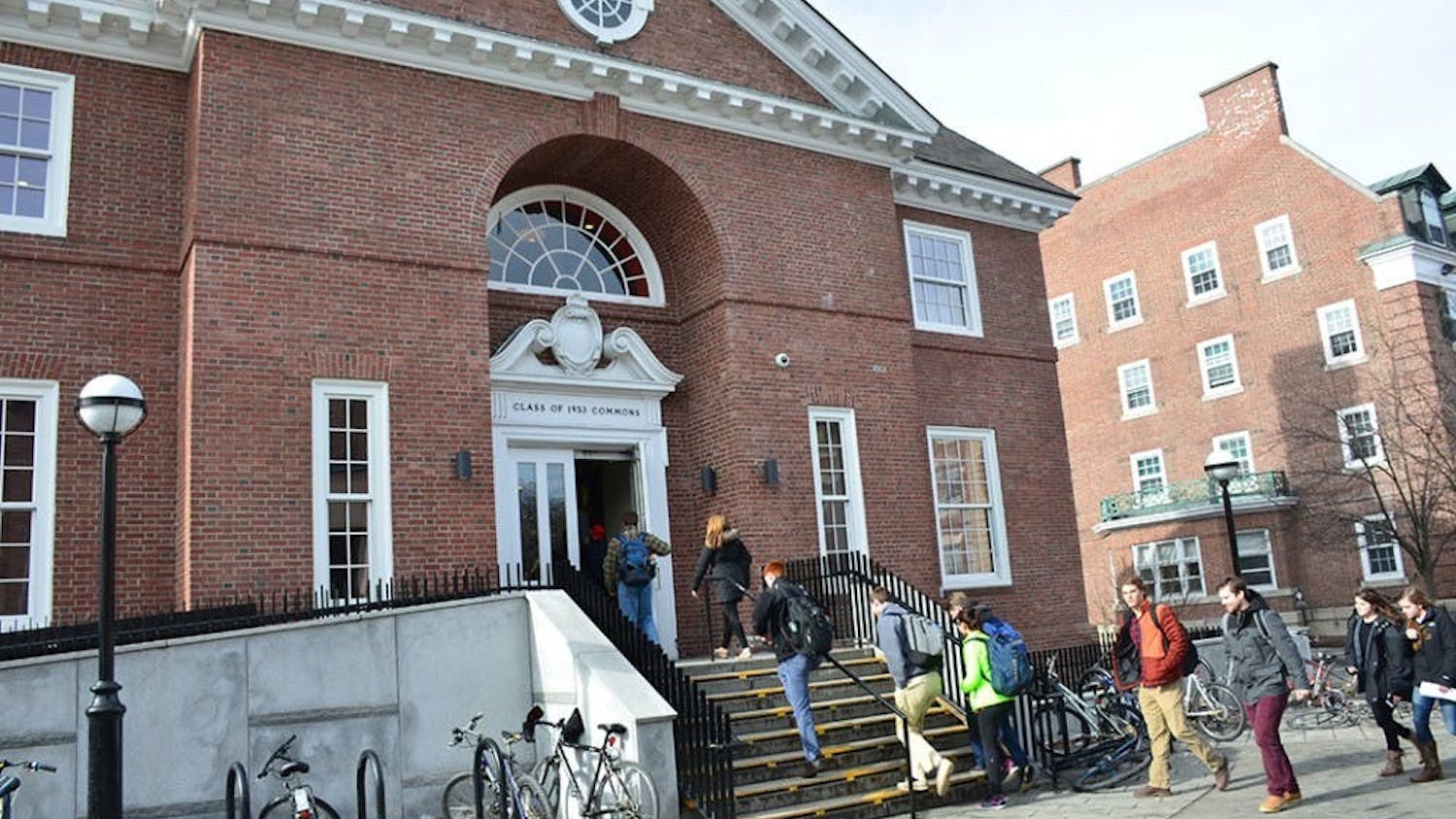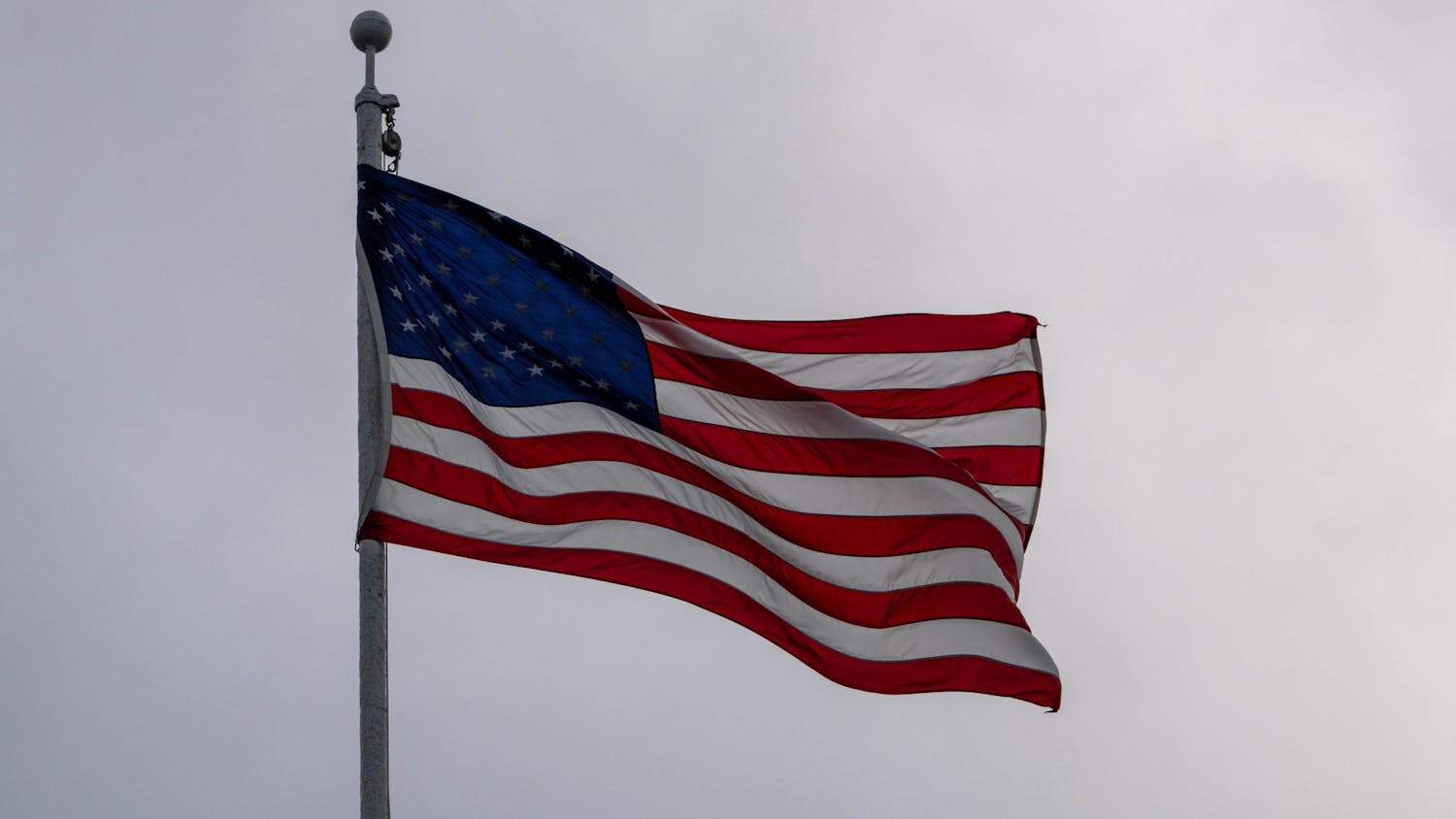Since Dean of the College Charlotte Johnson announced of the creation of the Center for Community Action and Prevention in early February, a group of professors have renewed their call for an independent review of campus climate at Dartmouth and increased transparency in the administration’s decision-making process.
On Feb. 13, Johnson sent an email to 18 faculty and administrators, inviting them to discuss sexual violence and other student life issues.
A group of around 10 faculty members met with Johnson for an initial meeting on Feb. 25, English and women’s and gender studies professor Ivy Schweitzer said. They spoke about topics like coordinating sexual assault resources, the separation of prevention and support efforts, the administration’s focus on the Dartmouth Bystander Initiative and the allocation of funds.
“We had a frank discussion with Dean Johnson and made many of our concerns known to her,” Schweitzer said in an email. “Especially about the trend of the College taking resources from one area and putting them into another.”
Johnson said in a statement that some of CCAP’s funding will come from the consolidation of existing resources, and added that the College remains committed to the work of the CGSE.
Biology professor Ryan Calsbeek, who also attended the meeting, said that a growing group of faculty members are now regularly emailing and meeting with each other to discuss these issues.
Members of Dartmouth Change, a nonprofit organization comprised of nearly 500 alumni and other community members that seeks to end sexual assault on campus, met with College President Phil Hanlon for the first time on Feb. 27.
On its website, Dartmouth Change lists 11 recommendations that the administration could take to address sexual assault. Its top two suggestions are for the College to commission an independent review of campus culture and to publicly reveal its strategy for addressing sexual assault.
Professors said that students and faculty have demanded an independent assessment of campus climate several times in the past, most recently in the Committee on Student Safety and Accountability’s 2013 report.
“We feel very strongly that this independent examination of all facets of campus culture needs to happen, because in order to establish programs that you think will be effective in targeting the problem, you have to know exactly what the problem is,” said theater professor Peter Hackett ’75, a member of Dartmouth Change.
Biology professor Lee Witters, also a member of Dartmouth Change, said he believes that sexual assault on campus is a symptom of broader social issues.
An “unbiased, external look” could place campus climate issues in context, he said.
“I think the framework for the growth of things like sexual assault, homophobia, racism, classism, you name it, comes from some common origins, and that focusing exclusively on assault doesn’t deal with the rest of this,” Witters said.
Johnson said in a statement that the administration is currently considering a campus climate survey.
Art history professor Mary Coffey said she noticed a general lack of clear channels of communication between administration, faculty and students. She cited an overabundance of committees and centers as a contributing factor.
Women’s and gender studies professor Giavanna Munafo, a former director of the Center for Women and Gender, now CGSE, said she thought campus resources should be better coordinated.
“We’ve been putting in a lot of effort into creating resources and hiring people, but are we connecting the dots?” Munafo said. “I’ve been here for 20 years and worked as an administrator for 15 years, and if it’s hard for me to figure out how all these resources are coordinated, I would imagine that for any undergraduate it would also be hard to figure it all out.”
Professors interviewed said they appreciated Hanlon’s willingness to seek input from the community, as exemplified by his open office hours every Friday, and looked forward to continued substantive discussions.
“Meeting with Dean Johnson left me feeling very hopeful,” Calsbeek said. “I think that faculty and administrators have different viewpoints about a lot of these issues, and that’s very healthy.”
Schweitzer agreed that faculty and administrators often have different approaches to these issues. The faculty seek both immediate improvements and structural shifts, she said in an email.
“The administration wants to take smaller steps that will not upset alumni and trustees,” Schweitzer said. “The faculty aren’t beholden to those constituencies; we have different sets of pressures.”
Susy Struble ’93, who founded Dartmouth Change, said the College has an opportunity be a leader in addressing sexual assault. Transparency, she said, must address the credibility gap between rhetoric and reality on campus.
Hackett said that CCAP’s creation exemplified the lack of administrative transparency.
In January 2012, about 120 students, administrators, faculty and staff gathered for Dartmouth’s first symposium on sexual assault, hosted by the SPCSA, and came up with recommendations, Hackett said. A violence prevention center topped the list.
Dartmouth Change members learned that the administration had rejected this suggestion, and responded by offering to raise funds to establish and staff the center. Administrators denied this suggestion.
Hackett said that the timing of the CCAP announcement called into question the reasons behind its creation, and added that the community would not support the center if it did not believe it was established for the “right reasons.”
“By announcing it without input from the campus community, instead of announcing it two years ago when it was publicly asked for by symposium and privately asked for by Dartmouth Change and many others including the president’s committee on sexual assault, while in the midst of a Title IX investigation, shortly after Bored at Baker, no matter what your intentions are, by doing it in this way it looks like you’re responding to a crisis in the press rather than doing it because it’s the right thing to do,” Hackett said.
Struble said that CCAP does not meet the goals outlined in the SPCSA symposium, which called for the centralization of health, security and legal resources in a physical plant that would house student groups such as Mentors Against Violence.
Dartmouth students filed a Clery Act complaint against the College last May. That month, the Department of Education opened an independent investigation into Dartmouth’s Title IX compliance.
Witters said Dartmouth is at a critical juncture in its history, and he has seen campus issues receive more discussion now than in his 30 years at the College. He added that, in the past six months, administrators have begun to make themselves more accessible to faculty.
“I don’t know what the reasons for that are, but there is a lot more conversation with the administration,” he said. “If you ask for a meeting, you’re going to have a meeting. I sense that people at every level are talking about this.”



